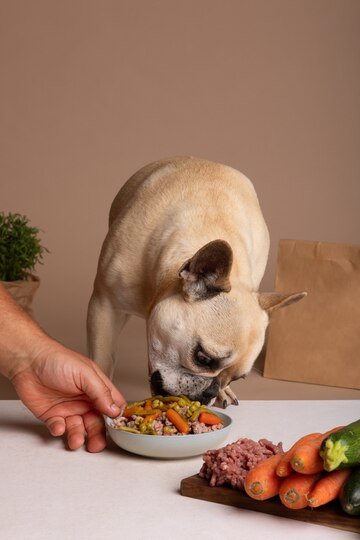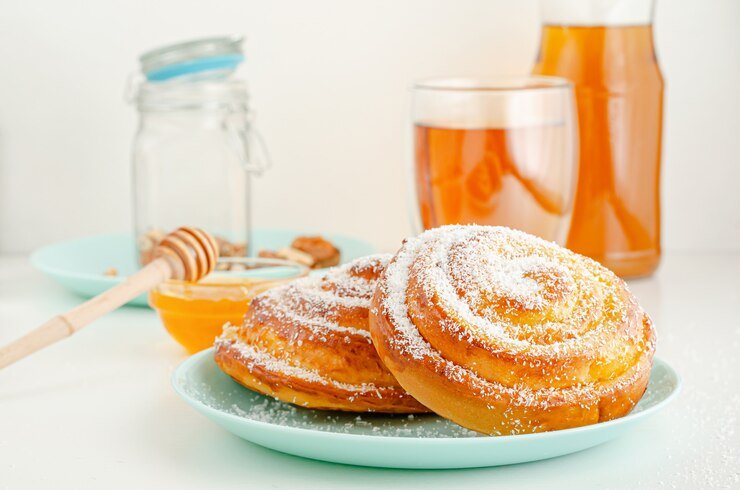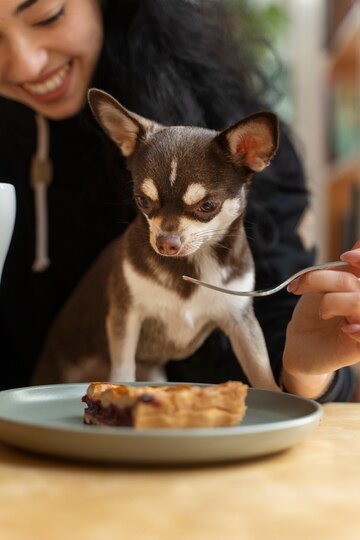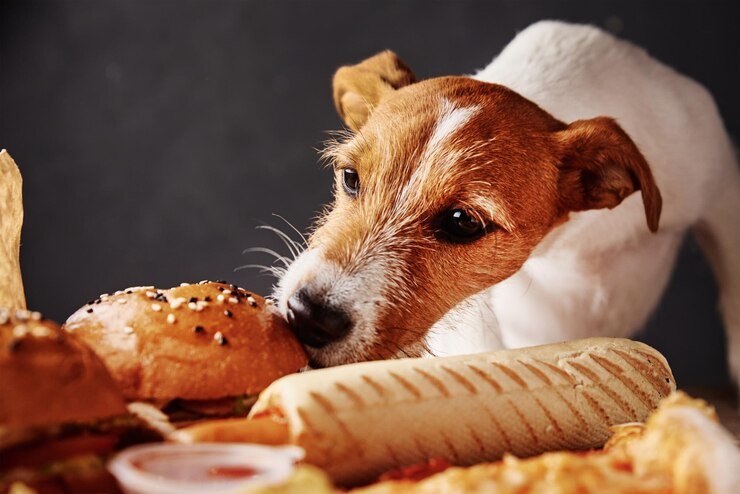The Sticky Truth: Why Honey Buns Aren’t Ideal for Dogs
Can Dogs Eat Honey Buns? Picture this, you’re indulging in a delicious honey bun, savoring the sweet and gooey goodness. Your furry friend gazes up at you with those puppy eyes, hoping for a share of your tasty treat. While sharing the love is tempting, honey buns are far from ideal for dogs. Let’s delve into the reasons behind this canine conundrum.

10 Sticky Reasons Why Honey Buns Are Off-Limits for Your Pup
Sugar Overload
Can Dogs Eat Honey Buns?: Honey buns are notorious for their high sugar content. Dogs, unlike humans, lack the enzymes needed to break down certain sugars effectively. Feeding them sugary treats can lead to digestive issues, obesity, and even diabetes over time. Just as too much sugar isn’t healthy for us, it’s equally detrimental to our canine companions.
Empty Calories
Apart from being high in sugar, honey buns are essentially empty calories. They lack the essential nutrients that dogs need for a balanced diet. Feeding your dog foods with little nutritional value can contribute to malnutrition and health problems. It’s crucial to prioritize treats that offer nutritional benefits rather than just empty sweetness.
Artificial Additives
Honeybuns often contain artificial additives, preservatives, and flavorings. These additives can harm a dog’s digestive system and may lead to allergies or sensitivities. Canines are better off with natural, dog-friendly treats that won’t compromise their well-being.
Obesity and Pancreatitis Risks
The combination of high sugar, empty calories, and artificial additives in honey buns increases the risk of obesity in dogs. Obesity is a serious health concern that can lead to various complications, such as joint problems and heart issues. Additionally, the high-fat content in some honey buns may trigger pancreatitis, a painful and potentially life-threatening condition for dogs.
Choking Hazard
The sticky and doughy texture of honey buns poses a choking hazard for dogs. Chunks can easily get lodged in their throats, causing distress and requiring immediate attention. It’s essential to choose appropriately sized and textured treats to ensure your furry friend’s safety.
Wheat Woes
Some dogs get tummy troubles from gluten found in toast. Imagine barfing rainbows and messy diarrhea – not the happy dance you wanted!
Snack Switcheroo
Can Dogs Eat Honey Buns? Honey buns become “I want more!” treats, leading to begging and bad habits. Swap them for healthy alternatives and train your pup for happy tail wags instead!
Treat Time Tantrums
Regular sugary treats can cause mood swings and hyperactivity. Imagine zooming zooms followed by grumpy meltdowns – your furniture won’t be happy!
Sticky Situation
Gooey crumbs stuck to fur might seem cute, but they can mat, attract dirt, and lead to painful skin problems. Keep the sticky mess away and let your pup’s fur shine!
Botulism Boogeyman
While rare, raw honey can harbor botulism spores, dangerous for puppies or pups with weakened immune systems. Think muscle weakness and paralysis – scary stuff!
Bonus Tips
Beyond the sugar and fat, artificial nasties like preservatives and weird flavors can lurk inside. These can cause allergies, tummy troubles, and even neurological problems. Spooky stuff!
What makes a good doggo treat? Ditch the buns and grab these paw-some alternatives

Fruity Fiesta
Apples, bananas, and carrots are naturally sweet and full of vitamins.
Veggie Vibes
Green beans, cucumber, and broccoli offer crunchy goodness and essential nutrients.
Homemade Happiness
Whip up some dog treats with pumpkin, peanut butter, or baked sweet potato.
Commercial Companions
Opt for dog treats with real ingredients and no added nasties.
Can Dogs Eat Honey Buns?:As much as we love to share our favorite snacks with our canine companions, honey buns are a treat best kept to ourselves. Opting for dog-friendly treats that prioritize their nutritional needs will keep them healthy, happy, and wagging their tails for years to come. Remember, a well-balanced diet and thoughtful treat choices are the keys to a thriving and contented four-legged friend.
Is honey good for dogs?

We all love the golden goodness of honey, but is it safe for our furry friends? Can Dogs Eat Honey Buns? Let’s quickly unravel the buzz surrounding honey for dogs. In moderation, honey can be a safe addition to your dog’s diet. Opt for raw, unpasteurized honey to ensure maximum benefits.
Health Highlights
Immune Boost: Honey’s antioxidants can strengthen your dog’s immune system.
Wound Healing: Topical application may soothe cuts and irritations.
Cough Relief: Consult your vet for mild coughs.
Cautionary Tips
Moderation: Avoid excess sugar intake; keep it minimal.
Natural Choices: Say no to processed or flavored honey.
Vet Check: Always consult your vet before introducing honey.
Is honey good for vomiting dogs?
Yes, honey can be a helpful remedy for vomiting dogs, but not all honey is created equal. Opt for high-quality Manuka honey to reap its potential benefits without risking adverse effects.
Administering small amounts of Manuka honey, around two teaspoons mixed in water daily, may not only assist with vomiting but also serve as a natural cough syrup. For dogs averse to water, consider mixing it into canned food or milk for a palatable and effective solution to digestive discomfort. Embracing the healing properties of Manuka honey can be a game-changer in providing your canine companion with gentle relief.
Conclusion
Can Dogs Eat Honey Buns?: In conclusion, honey buns are not a suitable treat for dogs. These sugary, often fatty pastries lack the nutritional value that dogs need and can pose risks to their health, including obesity, diabetes, and pancreatitis. The artificial additives and potential choking hazards further emphasize the importance of steering clear of sharing honey buns with your canine companion. When it comes to treating your dog, opt for specially formulated dog treats that prioritize their well-being and consult with your veterinarian to ensure that any indulgences align with their dietary requirements. Remember, a happy and healthy dog is best achieved through a balanced and dog-friendly diet.

Spread the positivity! Share this info with other dog lovers and help keep our furry friends safe from the tempting, but treacherous, honey bun.
Want to read our most popular post?
Additional Sources:













